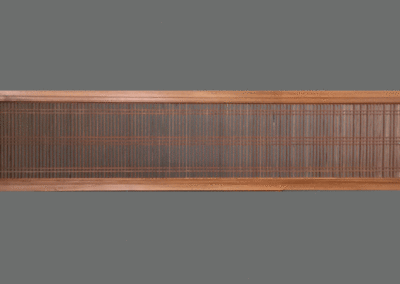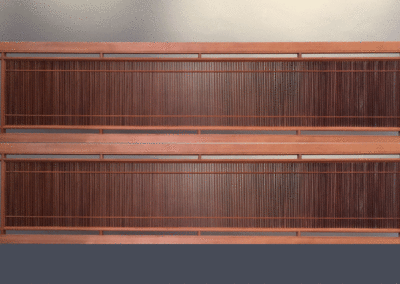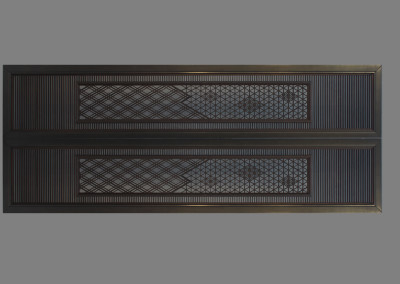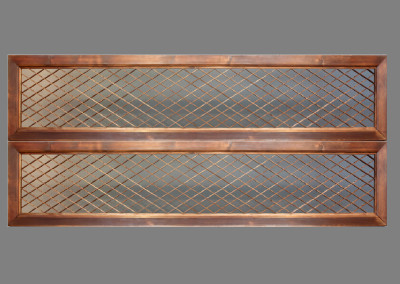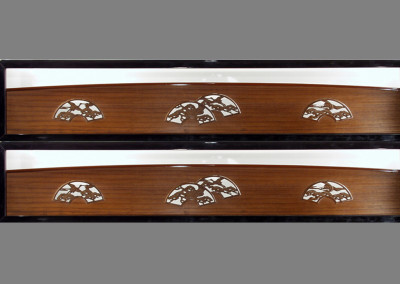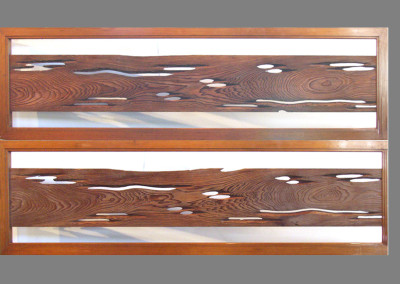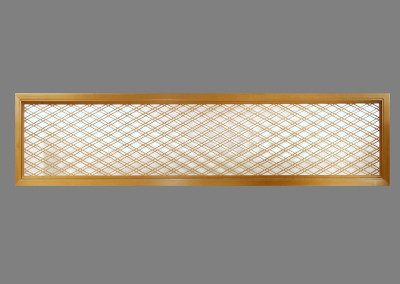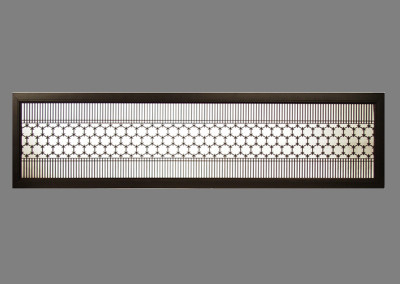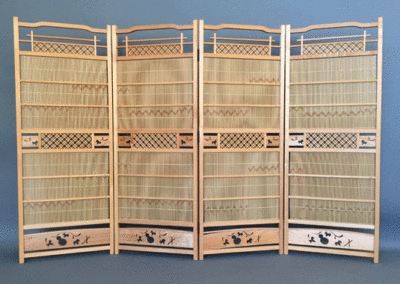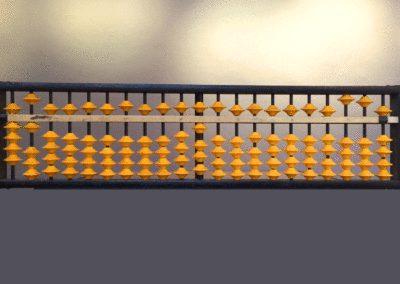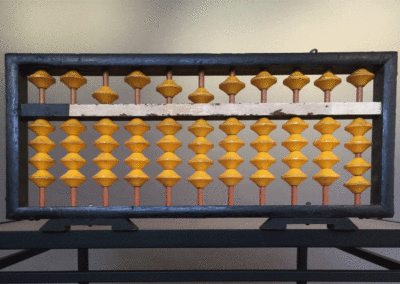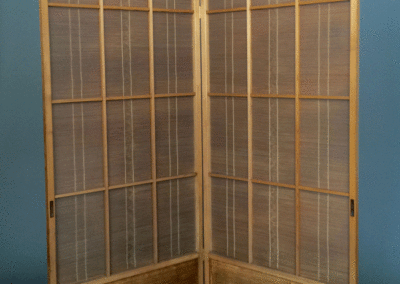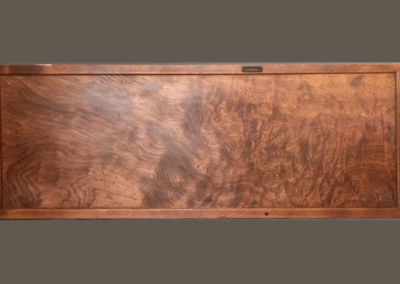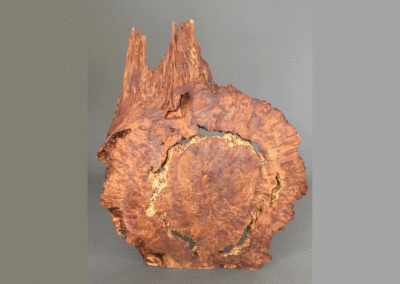Table Asia Gallery
Japanese RanmaThis is just a sampling of the antique and vintage Japanese wood panels we have in stock. For a specific size or style that you don’t see here, please email or call 415-seven five zero – nine nine five five.
About our Japanese Ranma:
The intrinsic beauty of these unique Japanese wood creations is the inspiration for Table Asia Gallery and our Japanese furniture. The workmanship found in these rare and unique panels is a reflection of the thoughts and passions of Japanese culture that stirred the spirit of artisans. Each of these authentic antique or vintage panels was constructed without the use of glue or nails. We never deal in reproductions. Since 1985 we have focused on bringing this beauty of Japan to a wider audience.
Ranma History:
Ranma have been used in Japan to artistically fill the wall space between the top of sliding doors and the ceiling for over a thousand years. They were introduced in the Heian Period (9th to 12th centuries) and placed above doorways to allow light and air to pass between interior rooms when the shoji or fusuma doors were closed.
Ranma are used in all traditional Japanese buildings: homes, temples, public buildings, and palaces. Most of our ranma are from the late Meiji through Taisho periods (1890s through 1920s).
Styles:
Geometric – slatted wood designs with endless variations, meanings and references.
Natural – carefully selected sections of trees representing themes of nature and religion.
Carved – meticulously created scenes of nature or historical reference.
Woods:
Hinoki (Japanese Cypress) Chamaecyparis obtusa.
Most often used for the perimeter frame.
Sugi (Japanese Cedar) Cryptomeria japonica.
Most typically used in the carved panel.
Kiri (Paulownia)
Paulownia Tomentosa.
Rarely used for flat panels within the frame. Popular in tansu.
Keyaki (Japanese Zelkova) Zelkova serrata. Very rare. Sometimes seen as burl wood panels.
Uses:
Popular as wall art or integrated architectural elements, ranma are also used in our custom tables.
All of our tables, in stock and built-to-order, are fabricated in San Francisco. We take great pride in evoking the spiritual essence of Japan by giving these ranma new life as artistic furnishings.
Ranma transom panels evoke the spiritual essence of traditional Japan, imbuing their environments with deeper meaning.

